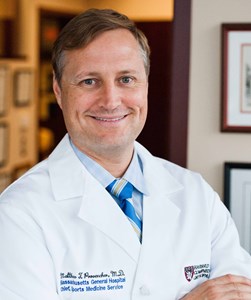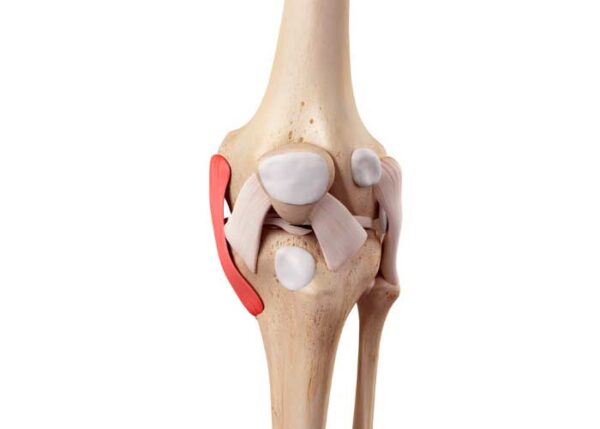MCL Reconstruction Surgeon

Are you an athlete who participates in contact sports? If so, you may be at risk of sustaining an MCL injury. The MCL can sustain an injury during certain twisting movements, direct contact to the outside of the knee, external rotation or combined force impacts when knee flexion is present. MCL reconstruction surgeon, Dr. Matthew Provencher provides diagnosis and both surgical and nonsurgical treatment options for patients in Vail who have developed an MCL injury. Contact Dr. Provencher’s team today!
What is an MCL Injury?
The medial collateral ligament (MCL) travels from the femur (thighbone) to the top of the tibia (shinbone) and is critical to stability of the knee joint. Even though patients are more familiar with an ACL injury, MCL injuries account for approximately 24% of all knee injuries. When the MCL sustains damage during a fall or sports injury, patients will experience knee pain, swelling and loss of stability. The ligament has the ability to heal on its own, unlike the ACL, but certain tears will require MCL surgery to return full stability and function to the joint. Dr. Matthew Provencher, orthopedic knee surgeon serving the Vail, Aspen, Colorado Springs and Denver, Colorado communities, is highly experienced at treating severe ligament tears with an MCL reconstruction.
The MCL typically experiences damage during athletic activities when contact is made to the outside of the knee joint or when excessive joint rotation occurs. Much like the other major ligaments within the knee, the MCL can become injured in isolation or in conjunction with the other ligaments.

How to Know if you have an MCL Injury
After a thorough physical examination, x-rays and an MRI are performed by Dr. Provencher to determine injury location, severity and pattern, the proper treatment plan will be prescribed. Since the MCL has the ability to heal on its own, many tears will heal with non-surgical measures, such as rest, ice, anti-inflammatory medications (NSAIDs) and physical therapy.
What is MCL Reconstruction?
Patients with a severe MCL tear and knee instability may be required to undergo MCL surgery in order to restore function and stability to the joint. Dr. Provencher commonly performs an MCL augmentation or an MCL reconstruction. A surgical augmentation requires Dr. Provencher to repair the torn ligament with sutures and use one of the patient’s hamstring tendons to reinforce the repair. An MCL reconstruction requires Dr. Provencher to use either an autograft (patient’s hamstring tissue) or an allograft (donor tissue) to replace the torn ligament. The graft is a similar size and shape of the native MCL and is placed in the exact location of the tear. The graft is secured with screws and/or anchors that are placed into the bone that contain strong sutures.
The outcomes of both MCL surgery techniques have been very successful at restoring function and stability to the injured knee. Dr. Provencher will determine the proper surgical procedure after the diagnosis and will explain in great detail with each patient.
What is the Recovery Following MCL Reconstruction?
A physical therapy program is necessary following MCL surgery and will be prescribed by Dr. Provencher and his team. The physical therapy program will begin immediately after MCL reconstruction or augmentation, but progression in terms of weight bearing, range of motion and strengthening will depend on injury severity and type of repair. It is strongly suggested that patients work with the in-house physical therapists at Howard Head Sports Medicine to optimize their rehabilitation. The majority of patients can expect a full return to activities around six months.
For additional information on MCL surgery techniques, such as MCL reconstruction and MCL augmentation, please contact Dr. Matthew Provencher, orthopedic knee surgeon serving patients in the Vail, Aspen, Colorado Springs and Denver, Colorado area.